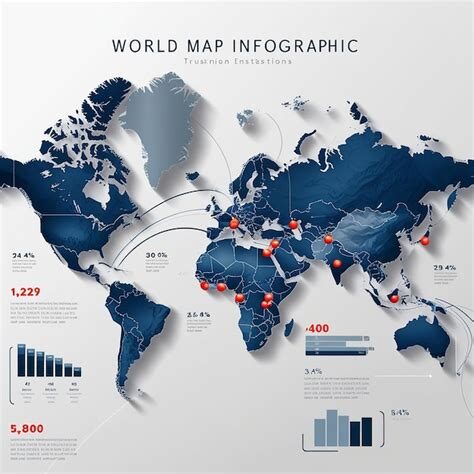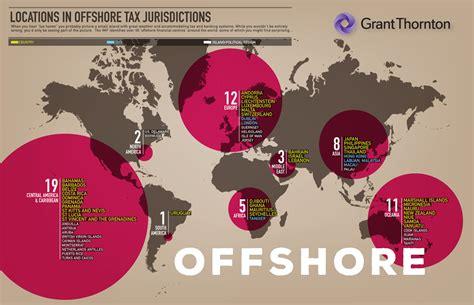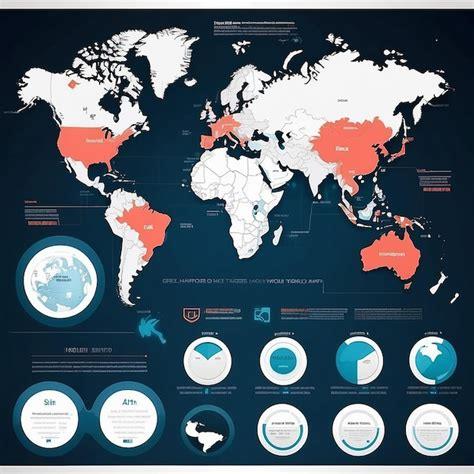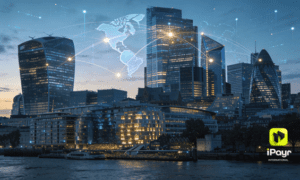The internet has transformed how people access knowledge about finance, business, and regulation. Where once such information was the preserve of law firms, accountants, and government agencies, online communities have emerged as powerful platforms for exchanging insights. In areas where information is scarce or deliberately opaque, such as offshore finance and high-risk industries, these communities have become indispensable.
Specialized forums provide a space where entrepreneurs, consultants, and individuals can share experience. They allow discussions about offshore company formation, banking in multiple jurisdictions, payment processing in difficult industries, and the use of digital assets. For participants, the appeal lies in the ability to hear from peers who have already navigated these challenges.
One such platform is OffshoreCorpTalk, a long-running forum that has positioned itself as a meeting place for discussions about offshore business structures, high-risk payment processing, and global compliance. Like similar communities in other
industries, it represents the broader phenomenon of digital knowledge hubs: informal yet influential spaces where practical guidance circulates outside traditional channels.
Academic research has shown that forums can sometimes outperform official information flows. Users can identify unreliable providers, highlight regulatory pitfalls, and expose fraudulent schemes before authorities or mainstream media catch on. Yet these communities are not without problems. Anonymity opens the door to biased or inaccurate information, and moderation is always a challenge. Still, in the absence of fully transparent financial markets, such communities provide an essential layer of peer-to-peer oversight.
Historical Background
The history of online communities goes back to the early days of the internet, when bulletin boards and Usenet groups allowed people to exchange information about niche subjects. These early networks laid the foundation for today’s specialized forums, where expertise is shared in a structured, topic-driven format.

In areas involving sensitive topics such as computer security, cybercrime, or offshore finance, forums played a unique role. Anonymity encouraged candid discussion, allowing participants to share knowledge without exposing their identity. This dynamic
was particularly important in industries that were legal but stigmatized, or where regulation was fragmented.
Academic studies confirm the significance of these communities. A widely cited paper presented at an IEEE conference in 2016 examined how cybercriminals use forums to exchange technical knowledge. Researchers showed that peer-to-peer discussions provided insights that were otherwise difficult to obtain. While the subject matter in that study was illicit, the same logic applies to legitimate industries that lack clear guidance. Forums become data sources for both participants and researchers, highlighting their dual role as practice and archive.
The offshore finance industry, with its reliance on jurisdictional arbitrage and regulatory interpretation, naturally lends itself to this kind of knowledge exchange. Communities grew around the need to share strategies, identify service providers, and track regulatory developments across borders.
Offshore and High-Risk Industries in Context
The offshore industry is defined by complexity. Regulations vary from one jurisdiction to another, and compliance requirements continue to expand under initiatives such as the OECD’s Common Reporting Standard (CRS) and the European Union’s Anti-Money Laundering Directives (AMLD). Payment processing is equally challenging for high-risk sectors, where banks and acquirers impose stricter thresholds for chargebacks, reserves, and onboarding.

Entrepreneurs and businesses operating in this environment face multiple questions. Which jurisdictions offer the most stable regulatory environment? How do anti-money laundering frameworks affect opening bank accounts abroad? Which electronic money institutions (EMIs) or payment processors are willing to work with high-risk industries such as gaming, adult entertainment, or nutraceuticals?
Mainstream media rarely provides answers to such questions. News coverage tends to focus on scandals, tax evasion cases, or regulatory crackdowns. This leaves a gap between the practical needs of businesses and the information available through official channels. Online forums step into this gap. They provide case studies, peer evaluations, and informal reviews that are difficult to find elsewhere.
Forums Versus Social Media
Although social media dominates online interaction, forums remain uniquely valuable for specialized industries. The differences are structural.
Forums are organized by topic and archive discussions permanently. Threads can be revisited years later, providing a knowledge base that evolves over time. By contrast, social media platforms such as Twitter (now X), Facebook, or LinkedIn emphasize immediacy. Posts disappear in the stream, making it difficult to build long-term archives of information.

For offshore finance and high-risk industries, permanence matters. Entrepreneurs want to review detailed case studies, step-by-step experiences, and feedback from multiple users. A structured thread on a forum provides that context. Social media rarely does.
Another difference is moderation. While forums often have strict rules about advertising and posting, social media platforms operate on algorithms designed to maximize engagement. This often leads to sensational or misleading content gaining traction,
rather than balanced analysis. Forums, by contrast, allow communities to self-regulate through moderators and peer review.
Benefits of Forums
The most obvious benefit of forums is transparency. Service providers may advertise banking solutions or corporate structures, but until users report real experiences, there is little way to verify claims. Forums allow participants to share feedback, exposing weaknesses or praising strong performance.
Another benefit is collective intelligence. Individual participants may only see part of the picture, but together they create a more accurate map of the industry. For example, one member might post about difficulties opening an account with a specific EMI, while another explains how regulatory changes in the European Union created that barrier.
Forums also function as early warning systems. Fraudulent providers or unreliable agents are often identified quickly by users who have been misled. By sharing their experiences, they reduce the risk for others. This type of peer-to-peer oversight supplements formal consumer protection mechanisms, which are often slow or ineffective in international contexts.
Examples abound. Threads on payment processors reveal whether certain providers honor payouts consistently. Discussions about offshore jurisdictions highlight how quickly regulations can change. Collectively, these insights save time and money for participants who would otherwise learn the hard way.
Risks and Limitations
Despite their benefits, forums face significant challenges. The most obvious is anonymity. While anonymity encourages openness, it also makes it easier for actors to post misleading information. Service providers may pose as satisfied clients, while competitors may post negative reviews.
Moderation is another challenge. Forums must balance free discussion with the need to filter out false or harmful information. Without effective moderation, the value of a forum can quickly deteriorate.
Even when posts are genuine, they are often anecdotal. One person’s positive or negative experience may not reflect broader reality. Readers must interpret information critically, cross-checking multiple sources before making decisions.
These limitations do not eliminate the value of forums, but they highlight the need for careful use. Forums are tools, not guarantees, and they work best when combined with independent research and professional advice.
Case Study: OffshoreCorpTalk
OffshoreCorpTalk is a notable example of a specialized forum that has carved out a niche in the world of offshore business and high-risk industries. Founded more than a decade ago, it has grown into a community with thousands of members and tens of thousands of posts.
The forum covers a wide range of topics, including offshore company formation, banking, electronic money institutions, payment processors, and cryptocurrency services. It also provides space for discussions on asset protection, compliance strategies, and taxation.
One of its defining features is the balance between open discussion and structured advertising. Service providers can participate, but they are subject to strict rules designed to prevent hidden promotion. This transparency is reinforced by peer scrutiny. Members often call out suspicious behavior, which helps maintain credibility.
Compared to other communities, OffshoreCorpTalk occupies a specific niche. BlackHatWorld, for example, focuses more broadly on digital marketing, search engine optimization, and affiliate industries. Reddit hosts numerous cryptocurrency subreddits, but these lack the structured permanence of a dedicated forum. OffshoreCorpTalk, by contrast, centers on the intersection of offshore structuring, finance, and high-risk services.
The forum’s role extends beyond casual discussion. For many users, it functions as a decision-support tool. When choosing a jurisdiction for incorporation, an EMI for banking, or a payment processor for a high-risk business, the collective insights shared on the forum can significantly influence choices.
Academic Perspectives
Researchers studying online communities have highlighted their role as decentralized systems of oversight. IEEE research on cybercriminal forums demonstrated how peer to-peer exchange creates technical knowledge that is otherwise unavailable. While the subject matter differs, the mechanism is the same: communities act as informal but powerful knowledge networks.
Other academic studies on internet trust models show that peer review can substitute for official certification in certain contexts. By aggregating multiple experiences, forums create a kind of reputation system that helps users evaluate risk.
These perspectives are particularly relevant in offshore finance and high-risk industries, where formal information channels are limited. Academic recognition of forums as data sources underlines their significance not only for participants but also for researchers and policymakers.
Future Outlook
The role of online forums is likely to grow. As financial regulation becomes more complex, the demand for peer-to-peer guidance will increase. Initiatives like the OECD’s CRS and the Financial Action Task Force’s anti-money laundering recommendations continue to reshape the industry. Businesses will need to adapt, and forums provide one of the few spaces where practical adaptation strategies are discussed openly.
Technology will also shape the future of forums. Advances in artificial intelligence may support moderation, making it easier to filter misinformation without stifling discussion. Privacy tools such as encrypted communication and anonymous payment methods may also encourage broader participation.
It is possible that forums will converge with formal advisory services. Some service providers already monitor forums to gauge industry trends and client concerns. Over time, this could create hybrid models where peer discussion and professional advice intersect.
Conclusion
Online forums represent an underappreciated but significant part of the global knowledge economy. They provide transparency in industries where official information is limited, allow participants to evaluate providers and jurisdictions, and serve as early warning systems against fraud.
OffshoreCorpTalk is one example of how such forums operate. It shows both the benefits and the limitations of peer-to-peer knowledge sharing. By combining open discussion with moderation and community scrutiny, it illustrates the potential of forums to function as decentralized oversight systems in complex industries.
As financial regulation expands and industries evolve, forums will remain valuable reference points. They are archives of collective experience, providing insights that no single authority or institution can replicate. For researchers, policymakers, and participants alike, these communities are worth paying attention to.



































